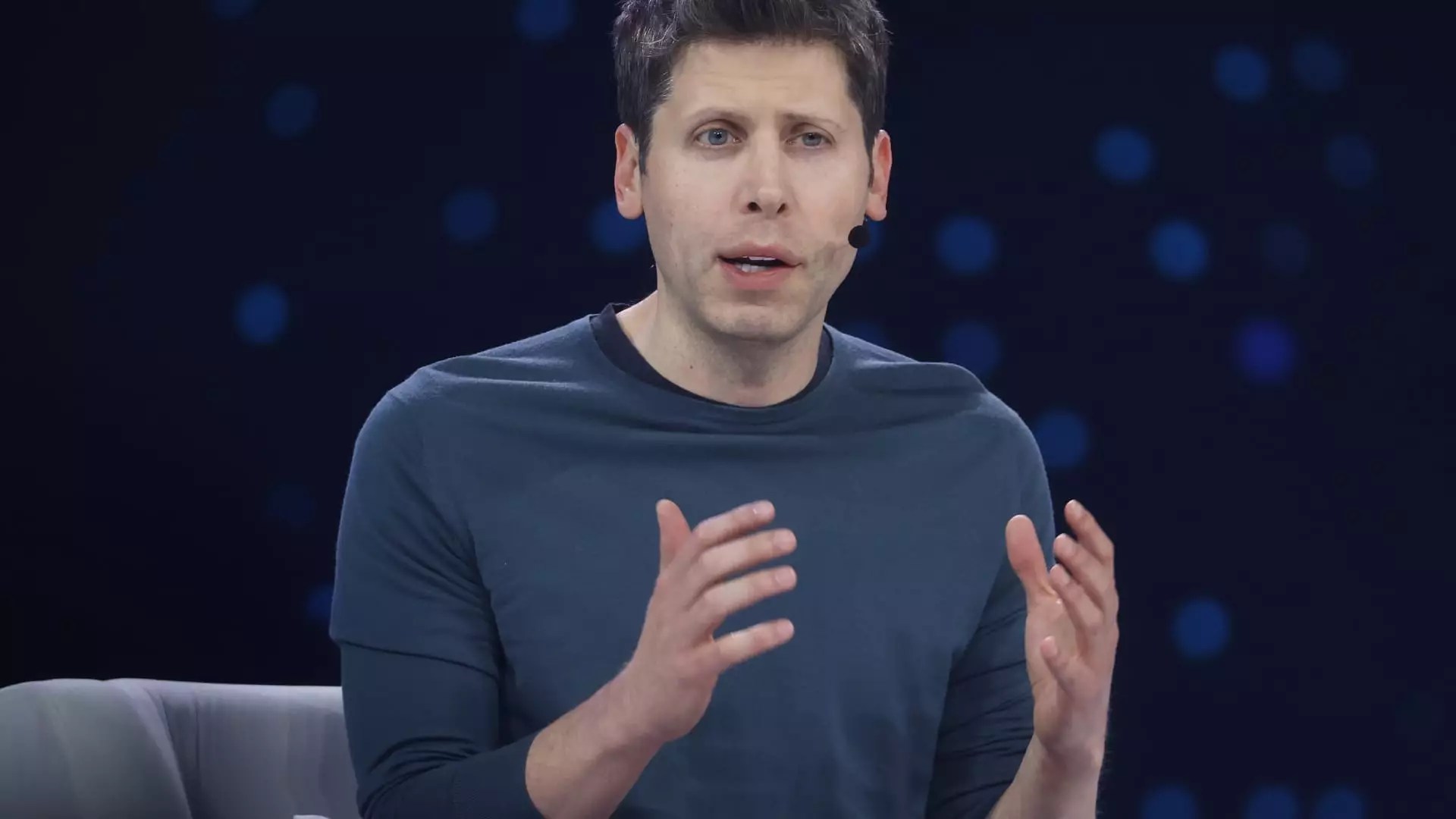In the fast-paced realm of artificial intelligence, competition is not merely fierce; it’s downright savage. Take, for instance, Meta Platforms, a company that has recently entered the spotlight for attempting to lure high-caliber talent from OpenAI with jaw-dropping signing bonuses of up to $100 million. Yet, despite this aggressive strategy, OpenAI’s CEO Sam Altman revealed that their top employees have largely eluded these enticing offers. The question buoying above this corporate skirmish is simple: can wealth alone cultivate innovation, or does it mask deeper flaws within corporate strategies?
Altman’s remarks on the “Uncapped” podcast underscore a troubling perception surrounding Meta’s AI endeavors. The tech behemoth, led by Mark Zuckerberg, seems to view OpenAI not merely as a competitor but as a benchmark they are struggling to meet. While Meta moves aggressively in recruiting talent, the reality is that throwing cash at problems does little to foster a culture of innovation or true advancement. This raises concerns among industry insiders: is Meta merely a ship drifting without a compass, unsure of how to navigate the complexities of artificial intelligence?
The Illusion of Superintelligence
Zuckerberg’s ambition toward creating “superintelligence”—an artificial system that could surpass human cognitive abilities—paints a vivid picture of aspiration blended with desperation. Reports indicate that Meta has been delayed in launching its latest flagship AI model due to concerns about its actual capabilities. In a landscape where OpenAI has produced game-changing innovations, Meta’s hesitation sends a signal that it is not merely chasing a moving target but is somewhat lost in its shadow.
The acquisition of Alexandr Wang’s Scale AI by Meta reflects a broader strategy, one that seems fixated on bringing in talent without fully grasping the ethos that makes cutting-edge innovation thrive. This obsession with assembling a super team may seem pragmatic on the surface, but it does little to establish a foundation for the kind of creative thought that has driven successful innovations to date.
The Counterintuitive Nature of Talent Acquisition
Altman’s critique regarding Meta’s financial incentives reveals an important paradox in the tech world: lavish spending does not equate to substantial achievements. He argues that an overemphasis on guaranteed large payouts can overshadow the importance of nurturing an innovative mindset. Much like how in sports the greatest teams often arise from players who gel well together over monetary compensation, the tech industry thrives on a shared vision and collaborative culture.
Meta is hardly the first tech giant to invest heavily in talent acquisition and yet struggle to deliver meaningful results. Businesses that prioritize immediate financial incentives often neglect to cultivate the kind of environment where true creativity can flourish. This is where Meta’s strategy falters; it seems to favor an approach steeped in imitation rather than genuine creativity. The argument here is that without a well-defined vision and an environment conducive to innovation, even the largest of financial commitments can fall flat.
A Split Perspective on Meta’s AI Landscape
Contrarily, some analytics voices, such as Daniel Newman from Futurum Group, push back against the narrative of Meta being lost in AI development. His point that Meta has laid considerable groundwork as a backbone for open-source AI development is valid—indeed, many innovative applications are built on the foundation Meta has created with projects like their Llama series of models. But is this enough? Is the mere framework sufficient to overcome a perceived lack of innovation?
Meta’s skyrocketing investments in AI firms signify a looming reality: the tech giant may have the resources, but does it possess the vision and the right kind of leadership to marshal them effectively? The future trajectory of its AI ambitions hinges not just on financial leverage but also on fundamental cultural shifts that prioritize innovation over imitation.
In the grand scheme of the AI landscape, Meta’s gamble—while bold—reveals deep-seated vulnerabilities. Without addressing the core issues of corporate strategy and innovation culture, no amount of money can produce the transformative results they so desperately seek. While the company is set to invest billions into acquiring talent, it remains entangled in a labyrinth of its own making, where the path forward is fraught with uncertainty and challenge.


Leave a Reply